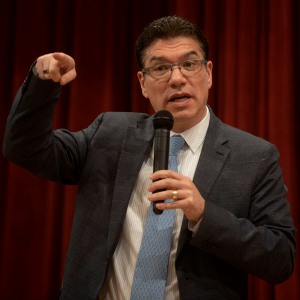Blue Cross pauses controversial anesthesia policy

Zoonar/N.Okhitin Zoonar/N.Okhitin
|
Published: 01-29-2024 11:10 AM
Modified: 01-29-2024 1:12 PM |
Less than a month after it began enforcing a longstanding policy restricting the use of anesthesia during colonoscopies and other procedures, Blue Cross Blue Shield of Massachusetts is pausing that action after physicians statewide lobbied the insurer to reconsider.
Dr. Sandhya Rao, the company’s chief medical officer, acknowledged in a statement that “there is confusion about the policy and the reasons for it. The confusion stems from inaccurate information about our coverage for the different types of sedation available to members for these procedures.”
Rao said the enforcement action, which began Jan. 1, was to ensure that members receive the type of sedation most clinically appropriate for them and consistent with national medical guidelines.
”Given the confusion, we’ve decided to pause enforcement of this policy while we work to make sure our members understand all their options for colon cancer screening and sedation and that they feel confident they’re getting the care that’s best for them.”
Physicians argued that the change was affecting patient care and comfort. The change restricts the use of deep sedation administered by an anesthesiologist for patients that don’t meet certain criteria. Instead, procedures now require the use of moderate anesthesia administered by the gastroenterologists performing the procedure.
Rao said in an emailed statement to the Gazette last week that, “Moderate sedation is an established, safe, effective alternative to propofol [deep sedation] that is always covered when deep sedation is not required.” She added, “Deep sedation remains available for qualifying patients and is one of many sedation options that doctors select to perform these procedures safely and effectively.”
Blue Cross began to enforce the longstanding policy after seeing a wide variation in how providers use sedation in colonoscopies and other endoscopic, gastroenterologic and pain procedures.
Since the change was enacted, a range of local, statewide and national organizations have spoken out in opposition.
Article continues after...
Yesterday's Most Read Articles
 Nearly all of South Hadley High’s student body holds ‘walkout to walk-in’ rally to oppose cuts, call for funding reform
Nearly all of South Hadley High’s student body holds ‘walkout to walk-in’ rally to oppose cuts, call for funding reform
 Northampton schools probe staff response to student’s unfulfilled IEP
Northampton schools probe staff response to student’s unfulfilled IEP
 UMass basketball: Minutemen land Florida Tech transfer Donovan Brown
UMass basketball: Minutemen land Florida Tech transfer Donovan Brown
 UMass Chancellor Reyes outlines changes amid financial uncertainty under Trump administration
UMass Chancellor Reyes outlines changes amid financial uncertainty under Trump administration
 Northampton Housing Authority boss placed on leave
Northampton Housing Authority boss placed on leave
 Four Red Fire Farm workers arrested as part of ICE operation in Springfield
Four Red Fire Farm workers arrested as part of ICE operation in Springfield
“The Massachusetts Association of Nurse Anesthetists Board of Directors stands united in firm opposition to any policy that compromises patient safety and impedes access to essential healthcare services,” said Glenn Colassi, president of the association. “We call for collaborative, patient-centric approaches that prioritize the well-being of individuals seeking medical care and uphold the highest standards of anesthesia practice.”






 Dash to the dealership?: Local consumers, car sellers brace for auto tariffs to kick in Wednesday
Dash to the dealership?: Local consumers, car sellers brace for auto tariffs to kick in Wednesday MTA president offers ways for legislators to address ‘unprecedented dangers’ to K-12 education in state
MTA president offers ways for legislators to address ‘unprecedented dangers’ to K-12 education in state ‘Wallace the Brave’ tumbles onto Gazette comics page
‘Wallace the Brave’ tumbles onto Gazette comics page
